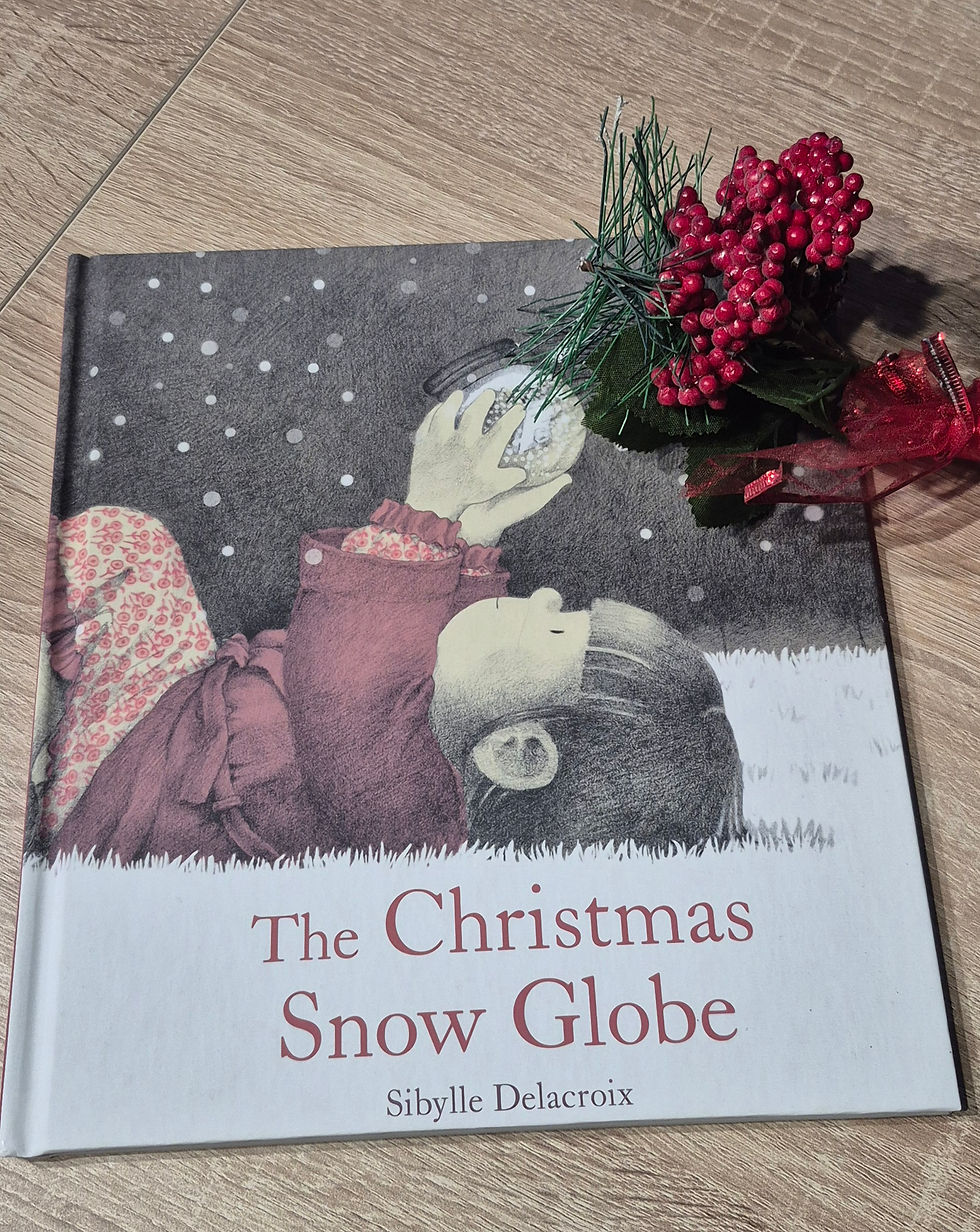Questions & Answers: Alkisti Halikia: 'Step into my Shoes'
- Paola Dell Acqua
- Dec 20, 2024
- 4 min read
Alkisti is an award-winning author from Greece. Having studied Philosophy and Gallery Studies, she now works as a Museum Education Officer designing and performing educational programmes for pupils aged 4-12 years old.
'Step into my Shoes' is a story about empathy, about the mother-daughter relationship. Alkisti explains how the story was created and how it can help make a better world.
1- I love how the main character, Matou, learns about empathy by literally
stepping into other people's shoes. What inspired this story?
When my daughter was about seven, she used to ask me to tell her stories
before sleep which I was making up that very moment. It was quite demanding
for me after a long day to make up a good story every night! But one night,
after a small quarrel we had - I can’t remember why - I thought the “tell me a
story of your own, mammy” routine was a good opportunity to talk about
empathy. So, I made up a story about a girl who could understand other
people’s feelings by observing them and trying to see things from their
standing point. We both enjoyed the story. Days after, I would repeat it to
myself, so I wouldn’t forget it. A couple of months later, as I was surfing on the
internet, I saw a picture of shoes outside a mosque. That picture was the
spark I needed to write the story.
2- Matou's relationship with her mother is important to the story. Can you
share something about your relationship with your mother?
I always had a very close relationship with my mother. She is tender and
open-minded. I could share most of my thoughts with her. She was always
there without judging me. She has been a role model for me and my
relationship with my daughter. I believe that apart from the word “empathy”,
“tenderness” is also a keyword of this book. Maybe, it is the ‘keyword’ for most
relations, too.
3- Whose shoes would you love to step into? (Can be someone famous or
not!)
I would love to step into the shoes of people that make others believe in the
power of solidarity and in the power of good, for example, there is the baker in a
Greek island that every day, for months and months, baked much more
bread than usual to offer to the refugees that reached the shore.
4- What do you want children to get from reading this book?
Every book is a seed that falls into the soul of children. This seed can bear
different fruits each time. Hopefully, “Step into my Shoes”, will help children to
take the small steps needed to see things from other people’s perspectives,
which is most necessary for building good relationships. I also hope that it will
show them how important it is to be observant in life. From a small line on the
shoes of somebody to their body position, a whole range of interesting details
narrate who the person next to us is and what his\her feelings are.
5- This is your first book, how did the idea of writing a book start?
How long did it take you to finish?
This is my first book translated into English but not the first book I wrote. It took
me a couple of months to feel sure I liked the story but only a few days to
write it.
6- The book is a lovely story...what prompted it?
Is it connected to any personal experience?
The relation to my daughter and all the kids I meet inspires me. I usually write
stories about real people that have eyes, smiles and ways I have seen.
The fact that children in our era often stay for long-or for ever- to the narcissist
stage and don’t see, understand or care enough for others was a thought that
I wanted to convey.
7- Why did you set the story in Paris and not in Greece? Why a mosque?
When I wrote the story, there wasn’t a mosque in Athens. It was the
time that there was a public debate about it that ended with the building of the
mosque. I wanted readers to see that in a metropolitan city like Paris,
different cultures and beliefs are respected. After all, Greeks that have always
been travelling around the globe and settling down in many different places,
always care to build a church. This right should be respected vice versa.
8- What message do you want to send with the story?
To look actively around and care for people, because this is the only way to
understand each other and live together peacefully. This must be taught by
the parents to children. The family has the responsibility of establishing these values.
9- Did you expect it to be translated into English, which means it will reach a
wider market?
I didn’t, but I remember a journalist writing a review when the book first came
out and noting that this is a story that should be translated.
10- Are you working on a new story?
Yes, I have a new story I am working on and is about the romantic feelings
girls and boys have for each other already from the age of seven-eight years
and how beautiful is when these feelings are expressed!
I find it so interesting to know what happens behind the stories. Many times, it helps me understand the story better; others, I feel it creates a bond with the author.
Thank you, Alkisti Halikia!!









Comments